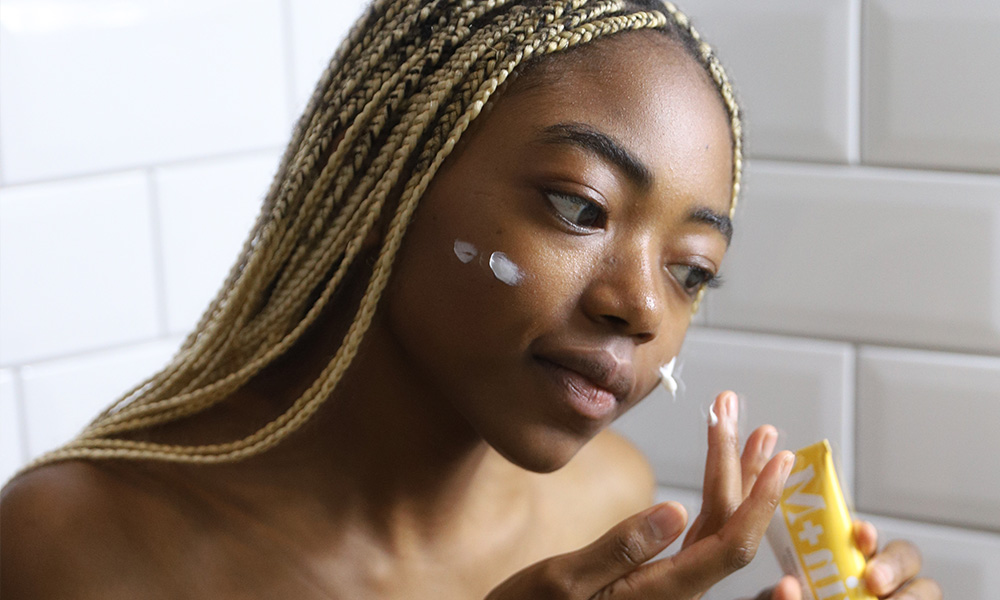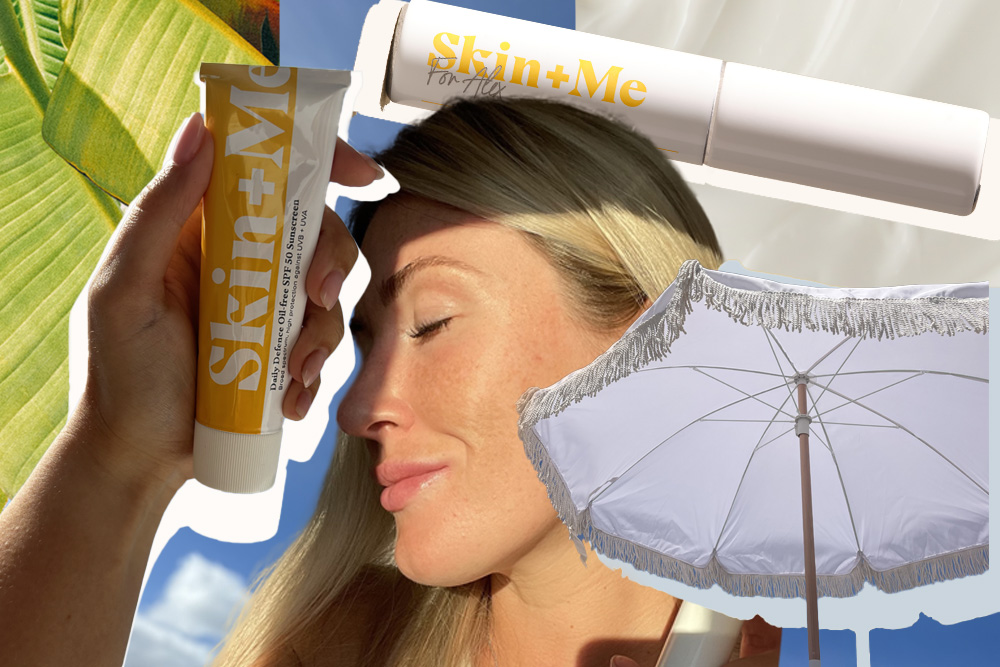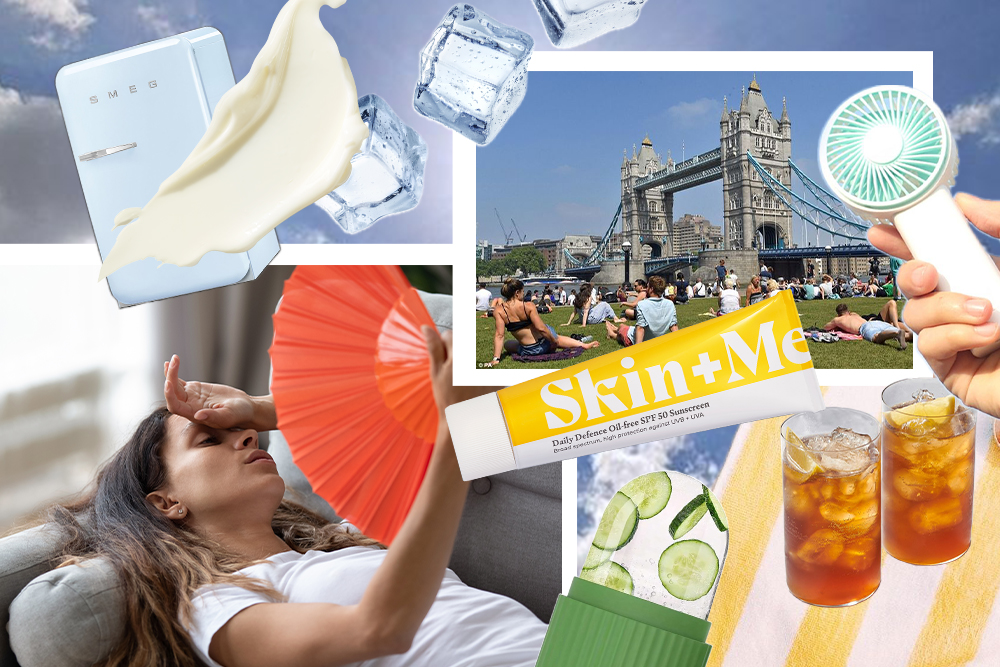Melasma 101

Link to share article here:
Ask A Dermatologist: Which Skincare Products Should Teenagers Use?
A few years ago, the typical teenage skincare routine often consisted of a quick splash with soap and water, sometimes a scrubbing session with a gritty, fruit-flavoured cleanser and maybe the occasional home-made honey and oat facemask. Fast-forward to today, and many young people and children are becoming interested in elaborate routines and expensive products and full of active ingredients – last Christmas, many parents reported receiving Christmas lists that looked more Harrods Beauty Hall than Hamleys.
Wanting good quality skincare isn’t a bad thing – it’s great that teenagers are more clued up than ever before – but not every trending product out there is going to be right for them. Many popular products are designed for more mature skin and the specific concerns that come along with it, such as sun damage, fine lines and hyperpigmentation. So, we asked Dr Beibei Du-Harpur, Dermatologist at Skin + Me, all about the best skincare for teenagers and how to build a supportive routine packed with goodness.
Why are teenagers so interested in skincare?
“Teen skincare I suspect has really emerged as a market because of awareness of skincare due to TikTok,” says Dr Beibei. A 2023 report from Ofcom found that 53% of 3-17 year-olds used the app, meaning it’s little wonder it’s shaping the way they shop for beauty products. On the platform, #skincare currently has over 16 million posts, while #skincareroutine has more than 4 million, and get-ready-with-me clips showing multi-step regimes regularly go viral.
It’s not surprising that young people are searching for ways to improve their skin, during what can be a difficult time. “Teen years can be a very self-conscious time, with acne affecting nearly all teenagers to some extent, so it is unsurprising that there is demand,” says Dr Beibei. Young people are under significant pressure from social media: according to a 2023 study, three quarters of children as young as 12 are embarrassed by the way they look, increasing to eight in 10 people aged between 18 to 21. “It certainly makes you wonder about the beauty standards they are being exposed to on social media, and how this is impacting how they view themselves and their faces and bodies,” notes Dr Beibei.
There’s also a risk of skincare misinformation spreading on platforms like TikTok – with no quality filter or fact-checking, anyone with an iPhone can tell people they “need” a certain product, without explaining how it works and what effect the powerful ingredients might have on younger, more delicate skin. “With the teen skincare market becoming increasingly buzzy, I do think there is a responsibility within the industry to market products in a way that is considerate of the well-being of young people,” says Dr Beibei.
Building a teenage skincare routine
As with adults, different teenagers will have different skin types and concerns, so the right routine for one young person won’t be right for everyone. Skin during childhood is fragile, and although it often becomes more oily and breakouts may occur during puberty, it still remains delicate. Powerful ingredients aren’t always appropriate for young skin – they might be damaging, or just have no effect at all. A simple, supportive routine is far better than a complicated one packed with unnecessary, expensive products.
How to choose a cleanser for teenage skin
A gentle yet efficient cleanser is a great way for young people to start their skincare routine. “Historically, teen skincare has tended to be quite astringent or drying,” says Dr Beibei, but the best cleansers for teenage skin wash away excess oil, makeup and sunscreen, without irritating or stripping away its natural moisture. Look out for humectants that will protect against irritation, such as glycerin – it’s a key ingredient in both our Skin + Me Purify + Prep Hydrating Cleanser and our Clarifying Cleanser – for a fresh start and end to every day.
How to choose a moisturiser for teenage skin
Even for acne-prone skin, a great moisturiser is an important way to protect the skin barrier and balance hydration levels. Teenagers with oilier skin should look for non-comedogenic moisturisers, which won’t clog the pores or make the skin feel greasy. Ceramides and humectants such as allantoin and betaine provide nourishment without increasing breakouts. Young people with drier skin can opt for something richer, with added ingredients such as shea butter.
The importance of sunscreen at every age
It’s never too early to get into the habit of using sunscreen every day. UV rays can affect people of all ages, and UVA rays are the number one cause of the early signs of skin-ageing – so, young people who want to future-proof their skin are better off using sunscreen over powerful ingredients intended for more mature skin. A good sunscreen of at least SPF 30 every is the ideal way to protect young (and older) skin.
Should teenagers use retinol?
Retinoids, such as retinol and prescription-grade tretinoin, are renowned for their multitasking abilities, from clearing spots to clearing pores. However, they’re also the gold standard treatment for anti-ageing, which has made them a common recommendation from beauty influencers. “Although retinoids are safe to use in teens (they can be used for acne), the general trend towards teenagers trying to get on to anti ageing skincare routines is a little worrying,” says Dr Beibei.
There’s no need for teenagers to use retinoids unless they’ve been advised to by a medical professional to tackle acne. At best they’re unnecessary, as they won’t be able to smooth away wrinkles that aren’t there, and they can be too harsh for young skin, leading to skin barrier damage.
Should teenagers use vitamin C?
Vitamin C is a skincare multitasker, but its strengths lie in tackling dark spots and increasing collagen production. Both hyperpigmentation and fine lines are associated with skin ageing, meaning that a vitamin C serum simply isn’t necessary for young skin. Although it’s unlikely to cause serious damage, using more products than necessary can cause irritation and redness, so it’s better to adopt when you’re in your twenties.
Should teenagers use skincare acids?
Skincare acids are popular ways to exfoliate the skin and brighten the complexion. AHAs and BHAs are two of the most popular types of skincare acids. AHAs are water-soluble acids and are used to treat skin pigmentation – one of the most common AHAs used in skincare is glycolic acid. BHAs are oil-soluble, so they can delve deeper into the pores to clear out excess sebum and dead skin cells – a popular BHA is salicylic acid.
Often acids are too harsh for younger skin, so should be avoided. However, some older teens who are experiencing spots and breakouts due to excess oil can find them useful. It’s important to take it slowly when using acids, and avoid overloading your skin with new ingredients or drying it out by forgetting to moisturise too.
Final thoughts
As a rule of thumb, we’d recommend starting gentle and only using stronger products as you get older and need more powerful solutions – for example, it’s best to try a spot patch before diving in and using an acid. Education is key, and remember to listen to your skin – the best skincare products are the ones that are right for your unique skin, not the ones you’ve seen other people use.
Social media isn’t going anywhere, so it’s important to get the right advice out there for young people keen to start their own skincare journeys. As Dr Beibei says: “It will be interesting to see how newer brands evolve to address teen skincare needs.” A simple, nourishing routine that supports the skin barrier will be enough for many teenagers – cleanse, moisturise and protect – but skin conditions like acne should be treated by a medical professional. If you’re over 16, you can complete a Skin + Me consultation, and our expert dermatology will find the very best routine for you.
New to Skin + Me? Get your first month of personalised skincare for £4.99 with promo code DOSE – complete our quick consultation here.
Looking for a routine refresh? Add the Dream Routine to your Skin + Me subscription.
In need of a restock? Head to The Skincare Shop for one-off purchases of your Routine Essentials.



